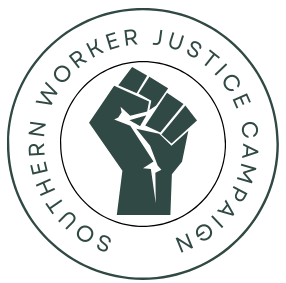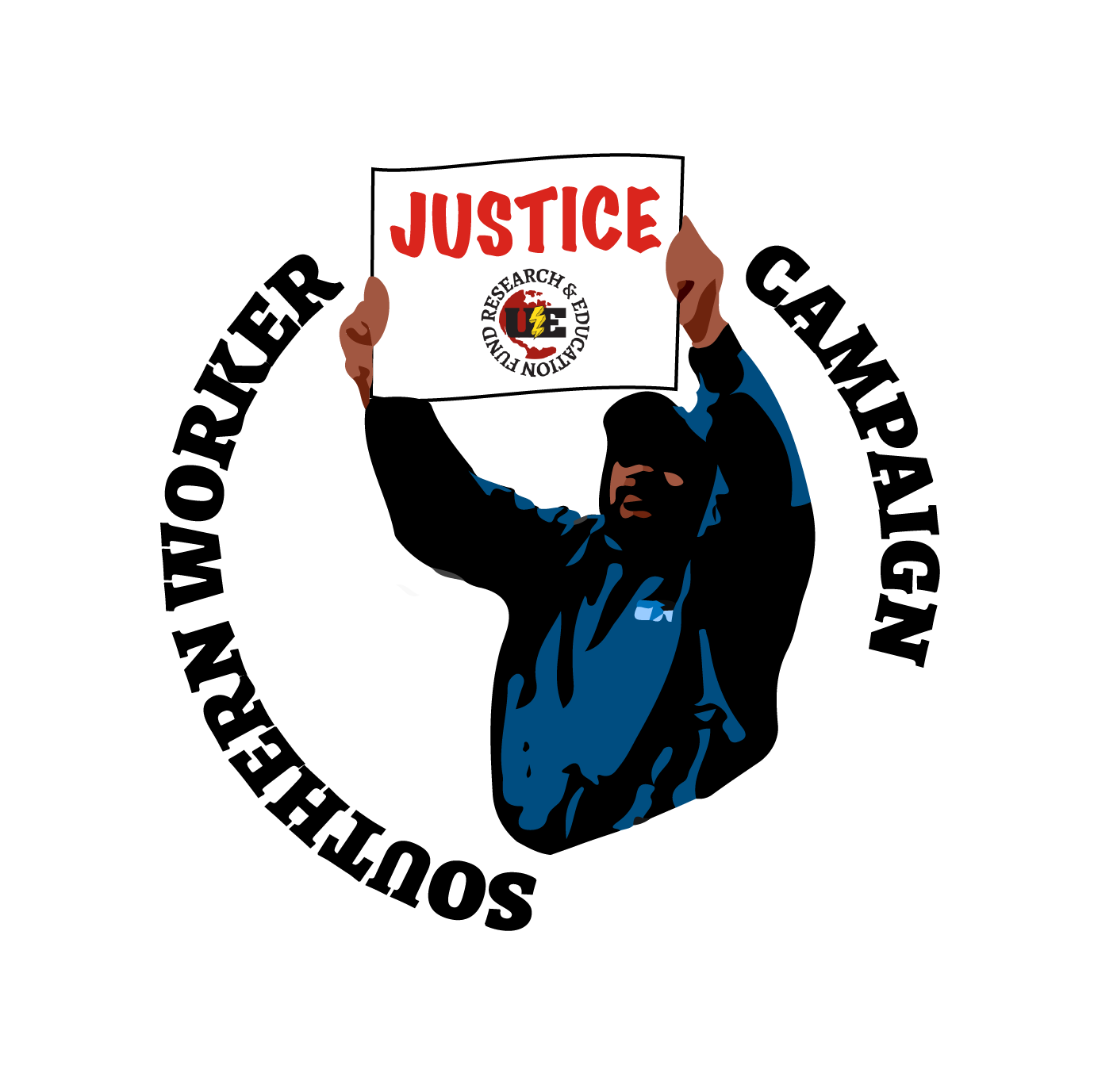
Racial and Economic Justice
Black, Brown, and immigrant municipal workers are integral to keeping our cities functioning and are highly visible in our communities. Yet they are consistently underpaid and subjected to institutional racism. We believe that when these workers organize for their rights, their impact will extend well beyond municipal services and catalyze change in other sectors, too.
We proved this theory through our work in North Carolina. In 2018, we organized Black municipal workers in Charlotte, Winston-Salem, Greensboro, Durham, and Raleigh to demand better pay and won a $15 per hour minimum wage. This victory resonated across the state, and in 2017-18, we successfully pressured the Legislature to extend this minimum to all state employees. In 2022, we won an $18 per hour minimum for city workers in Greensboro and Durham and $22 in Charlotte. We are currently working to build on these victories.

Communities, Not Cops
Black, Brown, and immigrant public sector workers who provide essential services are also members of our communities – our neighbors, fellow parents, co-parishioners, and more. Like us, they know that the outsized growth and militarization of police budgets in recent years has done much more harm than good. What our communities need is investment in social services and infrastructure, not more cops.
The Southern Worker Justice Campaign stands with the Black Lives Matter movement. We organize our members and allies to demand police accountability and the reallocation of municipal funds away from bloated police budgets, towards the needs of Black, Brown, and immigrant workers and their families. Our communities deserve the right and the resources to secure safety, wellness, living wages, and workplace dignity. We have built strong coalitions with community and faith organizations in Durham and Raleigh. Together, we are changing the narrative around public safety: We assert that not only is public safety possible without police brutality – it can only be achieved when police brutality is ended. We are currently expanding our campaign to redistribute public funds away from militarized police departments into investments that rebuild Black and Brown workers and their communities.

Advancing Local and Statewide Policy
For over 25 years, UE has been standing shoulder to shoulder with Black, Brown, and immigrant public sector workers to demand their rights – most importantly, their right to collective bargaining. Bans on public sector collective bargaining in the Us South date to the Civil Rights Era. They target sectors where the majority of workers are Black and Brown, and they were intended from the start to disempower people of color. These bans are a core driver of institutional racism and a shame on the states that impose them in the era of Black Lives Matter.
The Southern Worker Justice Campaign fights alongside public sector workers across the US South to win the right to unionize and collectively bargain. Complete or partial bans on collective bargaining are not only unjust to the workers, they are unjust to the communities they serve. In 2007, UEREF brought members of the United Nations’ International Labor Organization to North Carolina, which has a complete ban on public sector collective bargaining. The ILO found North Carolina’s law in violation of the international right to collective bargaining, but the state did not respond. We believe it’s time to bring this fight home.
We know we can win in North Carolina and elsewhere, because we’ve done it before. After years of activism, in 2021, along with other labor partners, we won a partial overturn of Virginia’s ban on public sector collective bargaining. Municipalities now have the right to pass ordinances allowing public sector workers to unionize. So far, city workers in nine localities have won ordinances to form public sector unions. We are currently building power in the Hampton Roads seven-cities area in Virginia, where our work is on the verge of producing additional expansion of collective bargaining rights to thousands of city workers.
In North Carolina, we successfully advocated for the City of Durham to place a repeal of the ban on public sector collective bargaining on their list of legislative priorities, and we advocated for NC House Bill 243/NC Senate Bill 561, which if passed will repeal the state’s ban altogether. The SWJC will keep up the fight until all public sector workers across the US South have secured the right to unionize. Most recently, our work on NC House Bill 470, helped expand Civil Service job security to thousands of city workers in Greensboro and Winston Salem. However, the Senate compromised our bill and only expanded rights for fire and police.
